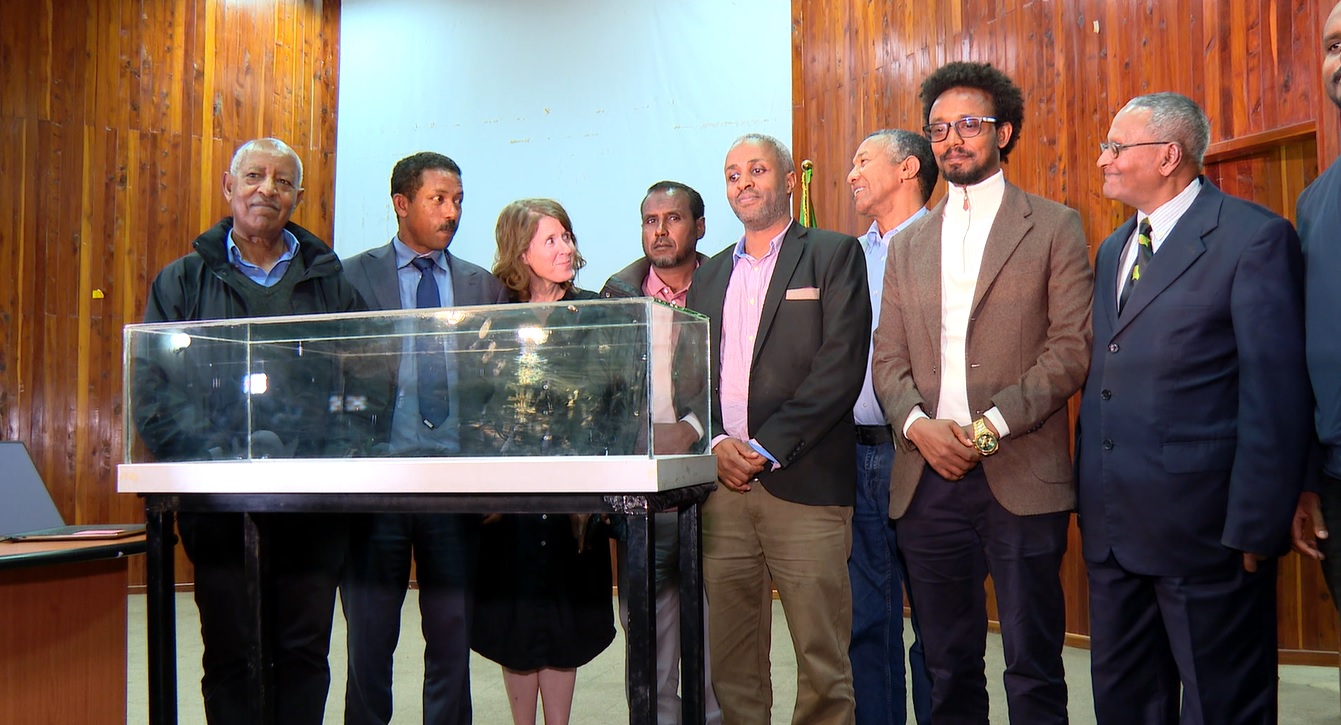
Revolutionary Fossil Discoveries in Ethiopia Rewrite the Story of Human Evolution
Groundbreaking discoveries in Ethiopia's Afar Region have unveiled a new species of Australopithecus and the oldest known specimen of the Homo genus, potentially revolutionizing our understanding of human evolution. The finds, made by the Ledi-Geraru Research Project, demonstrate that two distinct human ancestors, Australopithecus and early Homo, coexisted in the Lower Awash Valley approximately 2.6 to 2.78 million years ago.
This unprecedented overlap in the timelines of these two lineages in eastern Africa raises critical questions about their interactions, competition, and evolutionary trajectories. The implications of these discoveries are far-reaching, prompting a re-evaluation of what it truly means to be human.
Unearthing the Past: A Detailed Look at the Fossil Finds
The recent excavations yielded 13 newly discovered hominin teeth, collected over a period spanning from 2015 to 2018. Among these remarkable finds is a premolar tooth, estimated to be around 2.78 million years old, which has been identified as belonging to an early member of the Homo genus. This discovery pushes back the established timeline for the presence of Homo in the region, suggesting an earlier emergence than previously believed.
Furthermore, another set of teeth, dated to approximately 2.63 million years ago, has been classified as belonging to a completely new species of Australopithecus, one that was previously unknown to science. This discovery is particularly significant as it represents the first Australopithecus species found to have survived in the Lower Awash Valley after the extinction of "Lucy's" species (Australopithecus afarensis).
Coexistence and Competition: A New Perspective on Human Ancestry
The co-existence of both Homo and Australopithecus during this pivotal period paints a far more intricate picture of our family tree than previously imagined. It suggests a complex interplay between these two hominin groups, raising questions about how they shared resources, adapted to the environment, and potentially competed for survival.
Professor Amy Rector, Co-director of the Ledi-Geraru Research Project, emphasizes the significance of these findings: "This is the first time in eastern Africa that we have found evidence of these two lineages overlapping in time and space. Their potential coexistence brings up many questions, including how they competed on the landscape, how they evolved together in the Afar region, and ultimately, what it means to be human."
Ethiopia: A Cradle of Humankind
Ethiopian Heritage Authority Director-General Abebaw Ayalew has lauded the findings as being of "paramount significance for Ethiopia and the world at large." He highlighted the importance of these discoveries in solidifying Ethiopia's position as a leading site for paleoanthropological research and a key location for understanding the origins of humanity.
"These discoveries put Ethiopia ahead of any country as the origin of mankind," he stated, emphasizing the invaluable contribution of the research to both the scientific community and the country itself.
The Ledi-Geraru Research Project: A Legacy of Discovery
The Ledi-Geraru Research Project, a collaborative effort between Arizona State University and the Ethiopian Heritage Authority since 2002, has conducted numerous expeditions to the Afar region, resulting in a series of significant fossil discoveries. The project's ongoing work continues to shed light on the complex story of human evolution.
Future Implications and Preserving the Past
The Ethiopian government has announced plans for a new national museum, which will feature a permanent exhibition dedicated to these globally significant discoveries. This initiative underscores the importance of preserving and showcasing Ethiopia's rich paleoanthropological heritage for future generations.
The findings, set to be published in the prestigious scientific journal Nature, will undoubtedly spark further research and debate within the scientific community. These discoveries reaffirm Ethiopia's crucial role in unraveling the mysteries of human origins and highlight the ongoing importance of paleoanthropological research in the Afar region. They promise to reshape our understanding of the complex and fascinating journey of human evolution.


No comments:
Post a Comment